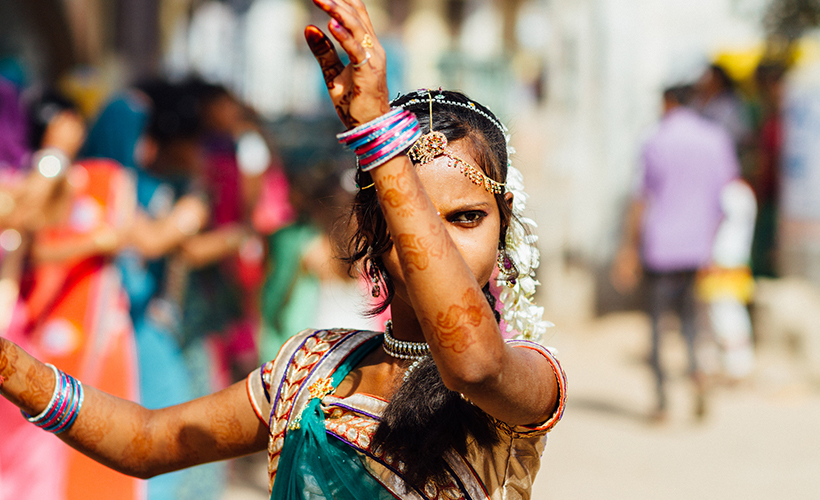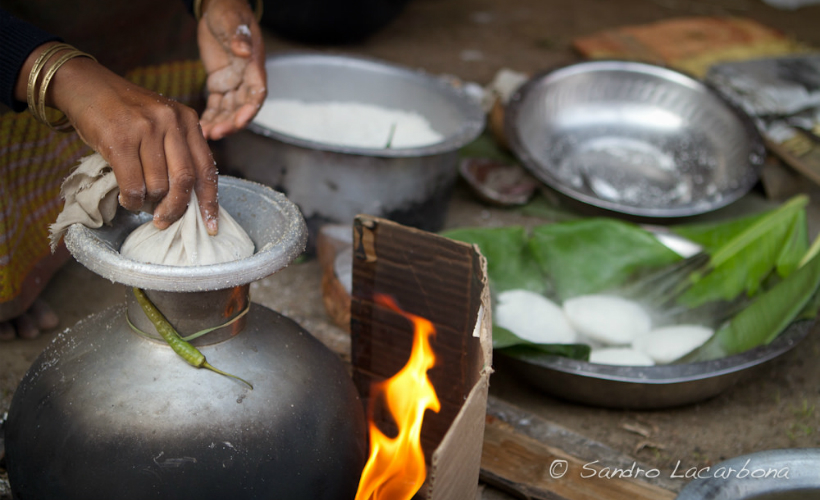
India’s diversity doesn’t cease to amaze even its lifelong citizens. Along with different terrains come different languages, social norms and of course – the best part – different food. The country’s North East region comprises seven sister states that are relatively cool, owing to the hilly altitudes, as well as from a cultural point of view, and that includes its food known as Assamese cuisine.
For anyone who thinks that Indian food is all spice, you only need to wander east for a decidedly different taste. Unlike other branches of Indian cuisine, Assamese cooking involves less frying and spices, but incorporates more steaming, fermenting, poaching, and slow cooking like roasting. It’s a simple, healthy and delicious cuisine.
As a paddy-growing society, the staple of Assamese cuisine is rice. There is a variety of side dishes but the most important part of an Assamese meal is to eat every dish with a little bit of rice in each morsel. There are several local varieties of rice, each with its distinct aroma and taste. The side dishes are cooked with lots of green, herbs, fish, and poultry. Sharing some similarities with other Asian cuisines, such as from countries east of India because of similar natural flora, the best of North Eastern food can be found in Assam’s Guwahati, the largest city of Assam and North Eastern India.
These are the dishes you must not miss:
Traditional Assamese Thali
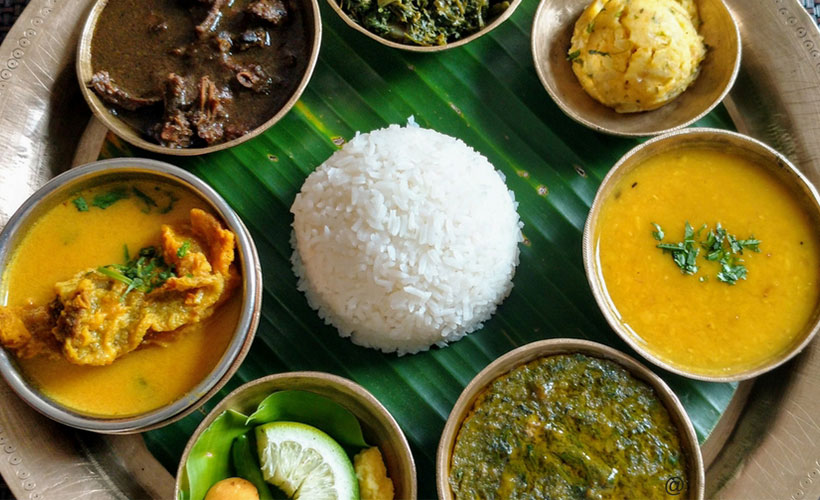
If you are visiting Assam for the first time, the Traditional Assamese Thali is a must try. The general items that you get on this platter are steamed rice, alu pitika (boiled potatoes mashed with raw mustard oil, salt, green chillies, and raw onion), chutney (lentil, sesame, and coriander dips), bhaji (vegetable stir-fry), dail (lentils), khar (a signature Assamese alkaline dish), kahudi and kharoli (fermented mustard seeds with a dash of tanginess), torkari (mixed vegetables), masor tenga (a sour fish curry), mangshor jhol (chicken/mutton/duck/pigeon curry) along with seasonal pickles.
A traditional Assamese meal always starts with khar, made by filtering water through vegetable pulp, to clear your palate for the delicious assault that’s about to follow. You then proceed to eat small morsels of rice with boiled lentils, tempered with minimal spices. Next, comes sweet river fish cooked in a perfectly-balanced tangy, sour broth. The mangshor jol is usually light and cooked with large chunks of potatoes. At last comes the payokh, a milk-based rice pudding or hurum, a traditional snack made from rice with a dollop of cream and liquid jaggery.
Where to try it
Paradise Restaurant
Address Maniram Dewan Road, Silpukhuri | Tel +91 9435548812 | Opens 11AM – 11PM | Price for two INR750 (about USD11.50)
Gam’s Delicacy
Address Opp Maniram Dewan Trade Centre, Betkuchi | Tel +91 8256020002 | Opens 10AM – 3.30PM & 9.30PM – 11.30PM | Price for two INR1,000 (about USD15)
Khorikat Diya Mas/Mangsho
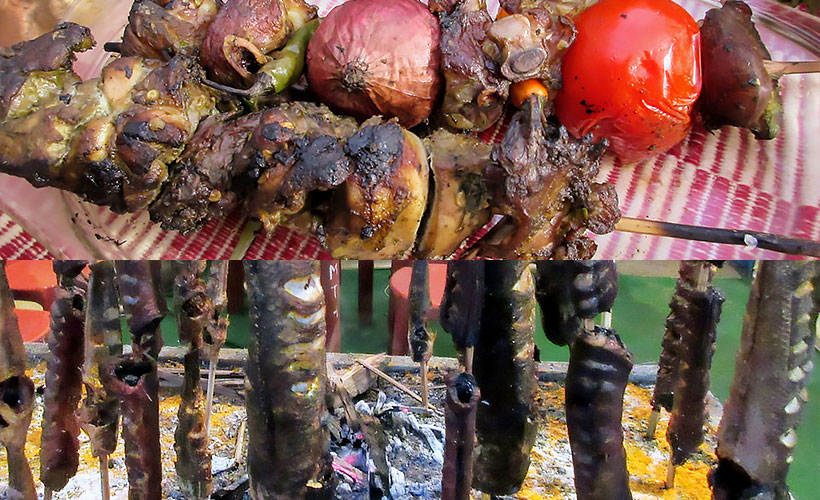
Bamboo shoot is a common ingredient in the North East; and bamboo sticks, called khorika in Assamese, also implies a method of cooking. Khorikat Diya Mas/Mangsho features fish or meat skewered through bamboo sticks, roasted over flames and served with chutneys or dips. This delicacy emphasises a perfect balance of freshness and flavours.
Where to try it
Khorikaa Restaurant
Address 1st Floor, Kamal C Plaza, Guwahati-Shillong Road | Tel +91 9864157454 | Opens 11AM – 4PM & 7PM – 10.30PM | Price for two INR500 (about USD7.50)
Fish/Meat Cooked In Hollow Bamboo
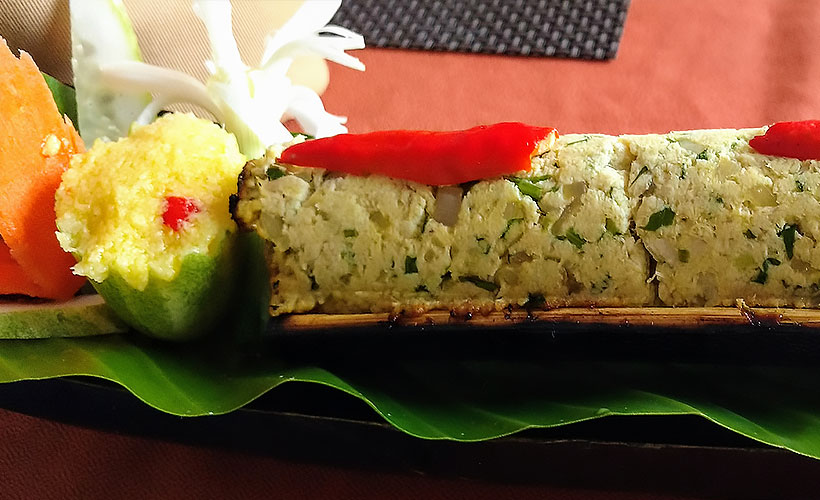
This is a no-oil, low-spice and slow-cooked item that is healthy and delicious.
Fresh meat or fish is mixed with herbs, salt, and a lick of ginger and garlic, before being placed in a bamboo hollow. Both ends of the stick are then sealed with hay and banana leaves before it is slow-roasted over a fire. Once the fish or meat is cooked, it is mashed with a dash of mustard oil and lemon juice to give it a distinct taste before serving.
Where to try it
Paradise Restaurant
Address Maniram Dewan Road, Silpukhuri | Tel +91 9435548812 | Opens 11AM – 11PM | Price for two INR500 (about USD7.50)
Patot Diya Mas
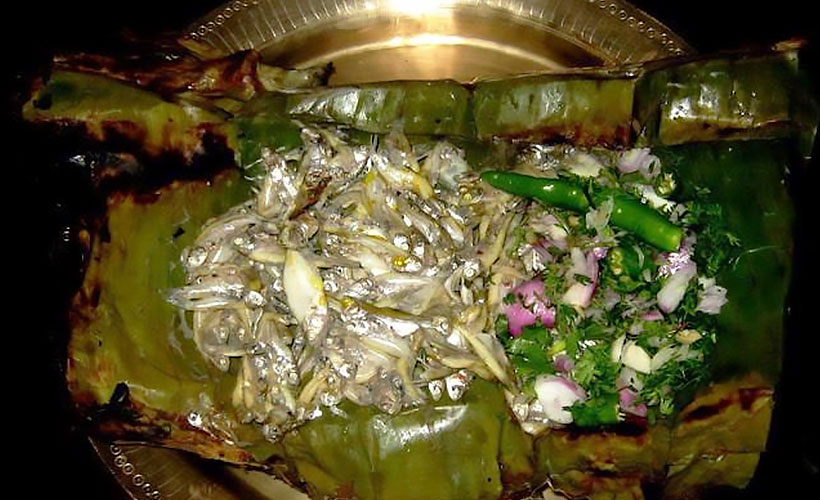
This is a traditional Assamese dish of fish cooked in banana leaves. Small river fish like mowa or dorikona is mixed with a generous amount of mustard oil, onion, ginger, garlic, green chillies and salt. The ready mixture is wrapped in tender banana leaves and grilled over charcoal to give it a smoky flavour. Once the fish is cooked (which won’t take longer than 10-12 minutes), it is mashed with another drizzle of mustard oil for added aroma.
Where to try it
Try it at any of the restaurants named above.
Axomiya Jolpan
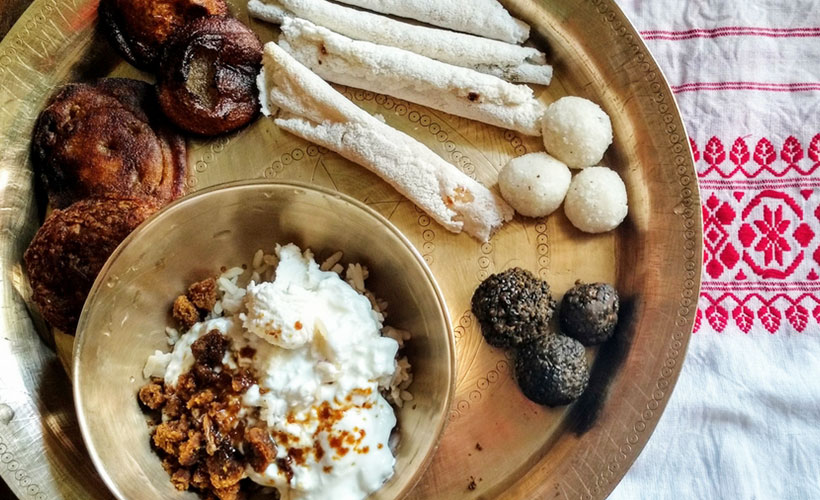
Jolpan is the quintessential breakfast of Assamese people. It includes snacks made from rice, a dairy item, and jaggery. You can have tekeli pitha (steamed rice pancakes), sandoh guri (roasted rice porridge), or aakhoi (puffed rice) with milk cream/curd and liquid jaggery. Jolpan can also be had as evening snacks because it fills your tummy and keeps you energised for a long time – a true breakfast of champions.
Tekeli pitha can be eaten at any roadside stall where it is made fresh and in front of your eyes. For a luxurious version, head to Vivanta by Taj, where jolpan is part of their breakfast menu.
Where to try it
Hotel Gateway Grandeur
Address GS Road, Christian Basti, Guwahati | Tel +91 3617110022 | Opens 12PM – 3PM & 7PM – 10.30PM | Price for two INR1,000 (about USD15)
Vivanta by Taj
Address Nikita Complex, GS Road, Khanapara | Tel +91 3617106710 | Opens 7AM – 11PM | Price for two INR1,000 (about USD15)
Bodo Cuisine
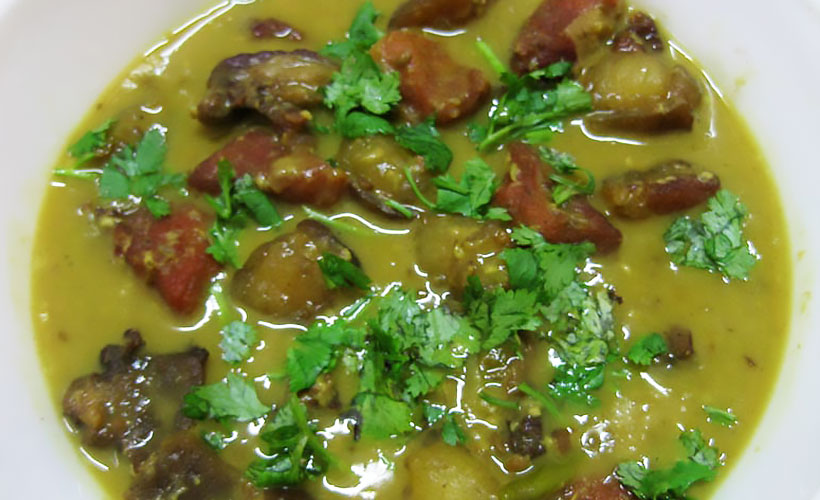
Assam is home to several tribes, most prominent among them being the Bodos. They have their own culture, language and food habits. Bodo cuisine is mostly less oily, with generous inclusions of medicinal herbs and greens. Try the Bodo-style chicken stew, which is loaded with herbs rich in medicinal properties. Another highlight is the Sobai Jwng Oma Gwran Jwng – smoked pork cooked with black gram (a type of bean), sun-dried banana peel, and ash from a carefully-burnt trunk.
Where to try it
Vivanta by Taj
Address Nikita Complex, GS Road, Khanapara | Tel +91 3617106710 | Opens 7AM – 11PM | Price for two INR1,000 (about USD15)
Mishing Cuisine
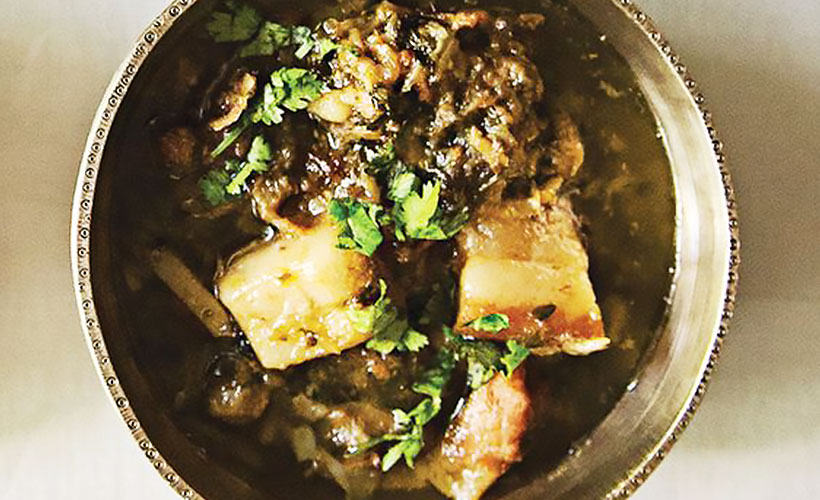
Similar to Bodo cuisine, Mishing food is also goes easy on the spices and is mostly cooked with herbs and greens. Pork features largely in their repertoire. Try the pork cooked with black lentils, pork with bamboo shoots, or smoked pork; all washed down by Apong, a local beer made by fermenting rice.
Where to try it
The Mising Kitchen
Address Hengrabari Road, Ganeshguri (near Public Health Chariali) | Tel +91 8134032862 | Opens 10.30AM – 10.30PM | Price for two INR1,200 (about USD18)
